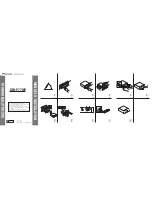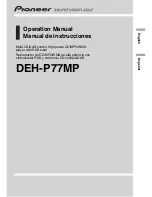
Smart Control
Smart Control Classes
Each object in the ADC configuration is represented as a PHP class. The classes currently
supported are:
l
adc
l
server
l
srvpool
l
si
Note
- Support for additional PHP classes will be available in future releases.
A class variable is a variable defined in a class of which a single copy exists, regardless of how
many instances of the class exist. There are two mechanisms to create a class variable:
1. To create a blank class variable, use the new keyword. For example:
$sp = new
srvpool;
2. To create a class variable that is filled in with the values of an existing ADC object, use the
getByName()
method. For example:
$sp = srvpool::getByName(“sp00”);
Once a class variable exists, there are several methods to read information about that variable
and common ways to modify the underlying object in the system configuration. Descriptions for
each class are shown below.
The supported parameters for each class are the same as provided in the CLI. Flags in Smart
Control are specified as individual Boolean parameters, rather than as a list (as in the CLI). For
example,
$sp->custom_hc
is the custom health check value for a server pool, and
$sp->probe_
ssl is a server pool’s probe_ssl
flag.
Create PHP scripts for Smart Events using the File Editor. Refer to
on page 826for
instructions on using it.
684
Copyright © 2014 Coyote Point Systems, A Subsidiary of Fortinet, Inc.
Summary of Contents for Equalizer GX Series
Page 18: ......
Page 32: ...Overview 32 Copyright 2014 Coyote Point Systems A Subsidiary of Fortinet Inc ...
Page 42: ......
Page 52: ......
Page 64: ......
Page 72: ......
Page 76: ......
Page 228: ......
Page 238: ......
Page 476: ......
Page 492: ......
Page 530: ......
Page 614: ......
Page 626: ......
Page 638: ......
Page 678: ......
Page 732: ...Using SNMP Traps 732 Copyright 2014 Coyote Point Systems A Subsidiary of Fortinet Inc ...
Page 754: ......
Page 790: ......
Page 804: ......
Page 842: ......
Page 866: ......
















































